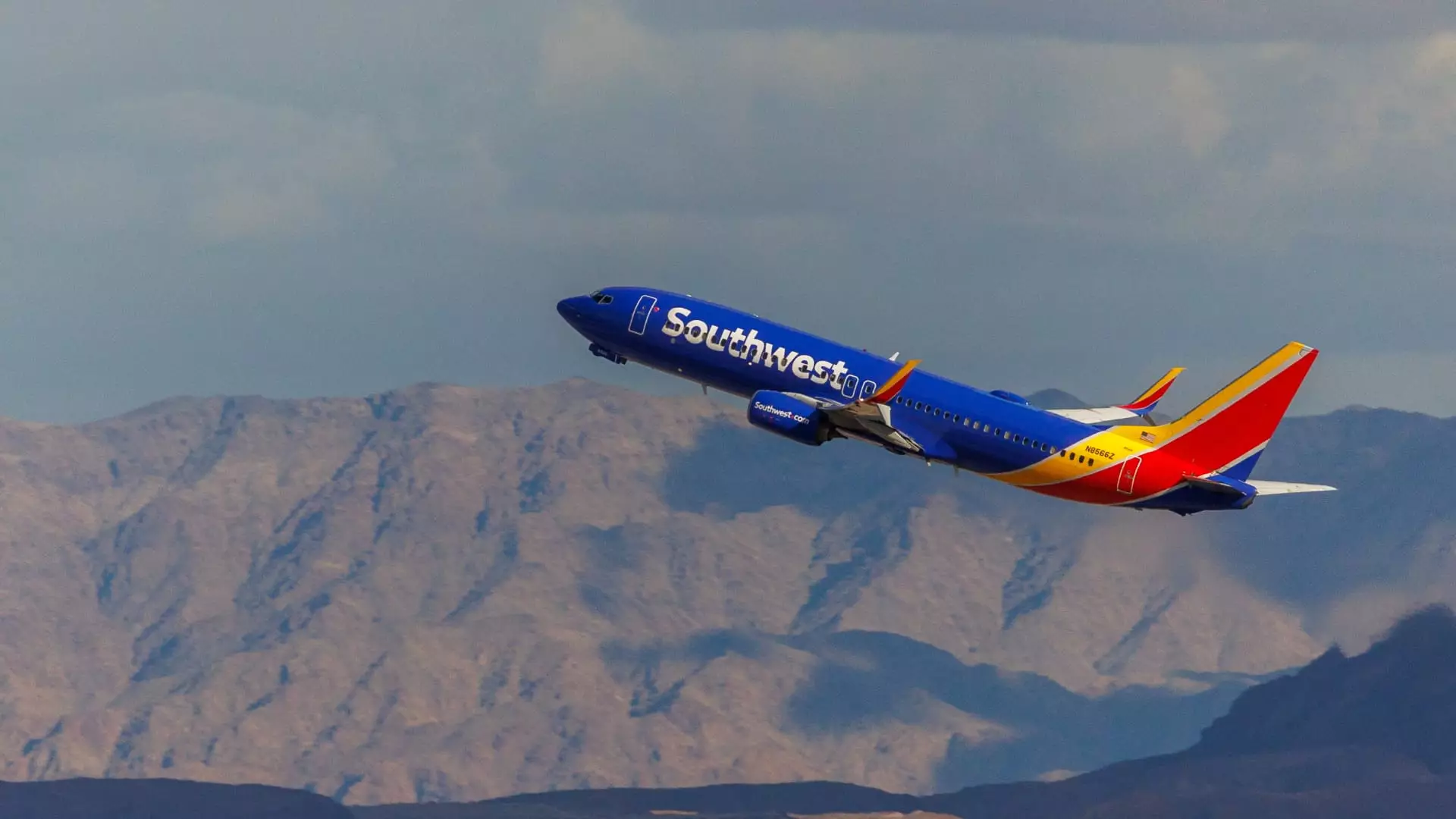Southwest Airlines, a carrier known for its open seating model, is making significant changes to its business strategy in light of rising pressure to boost revenue. After 53 years of operation, the airline has announced that it will be discontinuing open seating and introducing extra legroom seats on its flights. These changes mark a departure from Southwest’s traditional customer boarding process, which assigns passengers to one of three boarding groups without specific seat assignments. The airline’s decision reflects a shift in consumer preferences and travel patterns, as well as a desire to attract more corporate business travelers.
Southwest’s move towards assigning seats and offering extra legroom comes in response to customer feedback and market research. While the carrier’s open seating policy was once a defining feature, it has increasingly become a point of contention among travelers, with 80% of customers expressing a preference for assigned seating. CEO Bob Jordan emphasized that the decision to implement these changes was based on careful consideration and aligns with the evolving needs of passengers in today’s travel landscape.
As Southwest works to revamp its seating policies, the airline is also mindful of maintaining key selling points that differentiate it from competitors. The “bags fly free” policy and commitment to customer service have long been pillars of Southwest’s brand identity. In the face of activist investor pressure and declining profits, the carrier is looking to strike a balance between generating ancillary revenue through seating enhancements and preserving its core values.
Southwest expects that the introduction of assigned seating and extra legroom options will yield substantial revenue benefits, exceeding $1 billion annually. By aligning its product offerings with industry standards, the airline aims to attract a broader range of travelers and capture a larger share of the market. Southwest’s decision to invest in cabin adjustments rather than new aircraft reflects a pragmatic approach to maximizing returns on existing resources.
Despite calls for leadership changes from activist investors, Southwest remains committed to its current management team and strategic vision. CEO Bob Jordan has reiterated the airline’s dedication to open dialogue with shareholders, while emphasizing the importance of maintaining operational continuity. Southwest’s forthcoming investor day in September will provide additional insights into the company’s future direction and growth plans.
Southwest Airlines’ decision to eliminate open seating and introduce seat assignments represents a pivotal moment in the carrier’s history. By adapting to changing market dynamics and customer preferences, Southwest is positioning itself for sustained growth and profitability in the competitive airline industry. As the airline industry continues to evolve, Southwest’s willingness to embrace change underscores its commitment to delivering exceptional service and value to passengers.


Leave a Reply